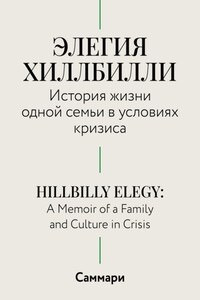ON A day when most sane people were doing their utmost to stay off the roads, Rafael Rocchi had decided against the ease and speed of the train and chosen instead to bring his Ferrari out of hiding. It wasn’t often that he got the opportunity to drive it, and what was the point of having all that supercharged brake horsepower and black metal tucked away in his London garage—cleaned and polished once a week by his chauffeur, Thomas, and then patted gently on the bonnet and locked away for another week of rest and relaxation?
Driving to his mother’s house in the Lake District would be perfect. He would be able to lose himself in the sheer pleasure of being behind the wheel of a car that was as powerful and challenging as an unbridled wild horse. Nothing topped it for a sense of freedom, which was, to him, invaluable because by contrast, his day-to-day life was so structured. Running the Rocchi empire, which he had done singlehandedly since his father had died eight years previously, was not exactly a liberating experience. Invigorating, yes. Highly charged and immensely satisfying, yes. Liberating, no.
Once on the open road, the car devoured the distance noiselessly and effortlessly. On this rare occasion, Rafael had switched off his mobile phone and instead was listening to the rousing dynamism of classical music, keenly alert to the condition of the roads, but not unduly bothered. The past few days had seen snow cover the length and breadth of the country, and although none was currently falling, the fields as he headed up north were still blanketed in white.
At no point did he think that a fast car on treacherous roads was a lethal combination. He was utterly convinced of his own ability to control his Ferrari, just as he was convinced of his ability to control every aspect of his life. It was probably why, at the age of thirty-six, he was already legendary in the business world, feared for his ruthlessness as much as for his brilliance.
He was even occasionally inclined to think that women feared him equally, and that, he thought, was a good thing. A little fear never hurt anyone, and it paid to make sure that a woman knew who controlled the strings in a relationship. If six-month flings could be deemed relationships. His mother certainly had an alternative way of describing them, which, he thought, was behind this grand party of hers. A little impromptu post-Christmas event, she had told him, to lift everyone’s spirits because there was no month flatter than February—yet how impromptu could a party be when catering for over a hundred people had to be arranged?
No, his mother was on the matchmaking bandwagon again, even though he had repeatedly told her that he was not up for grabs, that he liked his life precisely as it was. As far as his mother was concerned—traditional Italian that she still was at heart, even after decades of living in England—unmarried and offspring-free at the age of thirty-six couldn’t possibly be a happy situation for anyone. She herself had married at twenty-two and had had Rafael by twenty-five, and would have had several more children had fate not seen fit to deny her the chance.
She had also insisted that he attend, which was ominous, but in the whole world the one person whom Rafael respected unconditionally was his mother. And so here he was, at least for the moment enjoying the experience of getting there even if, once there, he would be bored out of his skull—and probably stuck having to make mind-numbingly dull small talk with a girl with whom he would almost certainly have nothing in common.
His mother had never come to grips with the truth that Rafael liked his women almost solely for their looks. He liked them tall, blonde, obliging and, most important of all, temporary.
All it took was that small lull in his concentration. As he rounded the corner of the small country road which led towards his mother’s substantial property, he pressed on the brakes at the sight of a car which had veered off the road and ploughed into the snowy bank at the side. The Ferrari spun round, and in a squeal of protesting tyres came to a halt just feet away from the hapless and, as Rafael could see as soon as he had stormed out of his skewed car, abandoned Mini.
His pleasurable satisfaction had come to an abrupt halt, and there was someone on whom he could vent his well-deserved rage. Someone standing up from the other side of the Mini now, fixing him with a startled glance. A woman. Typical.














